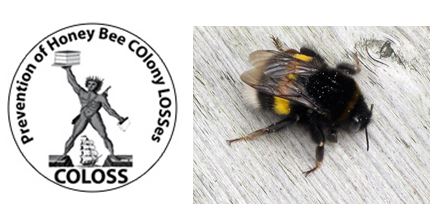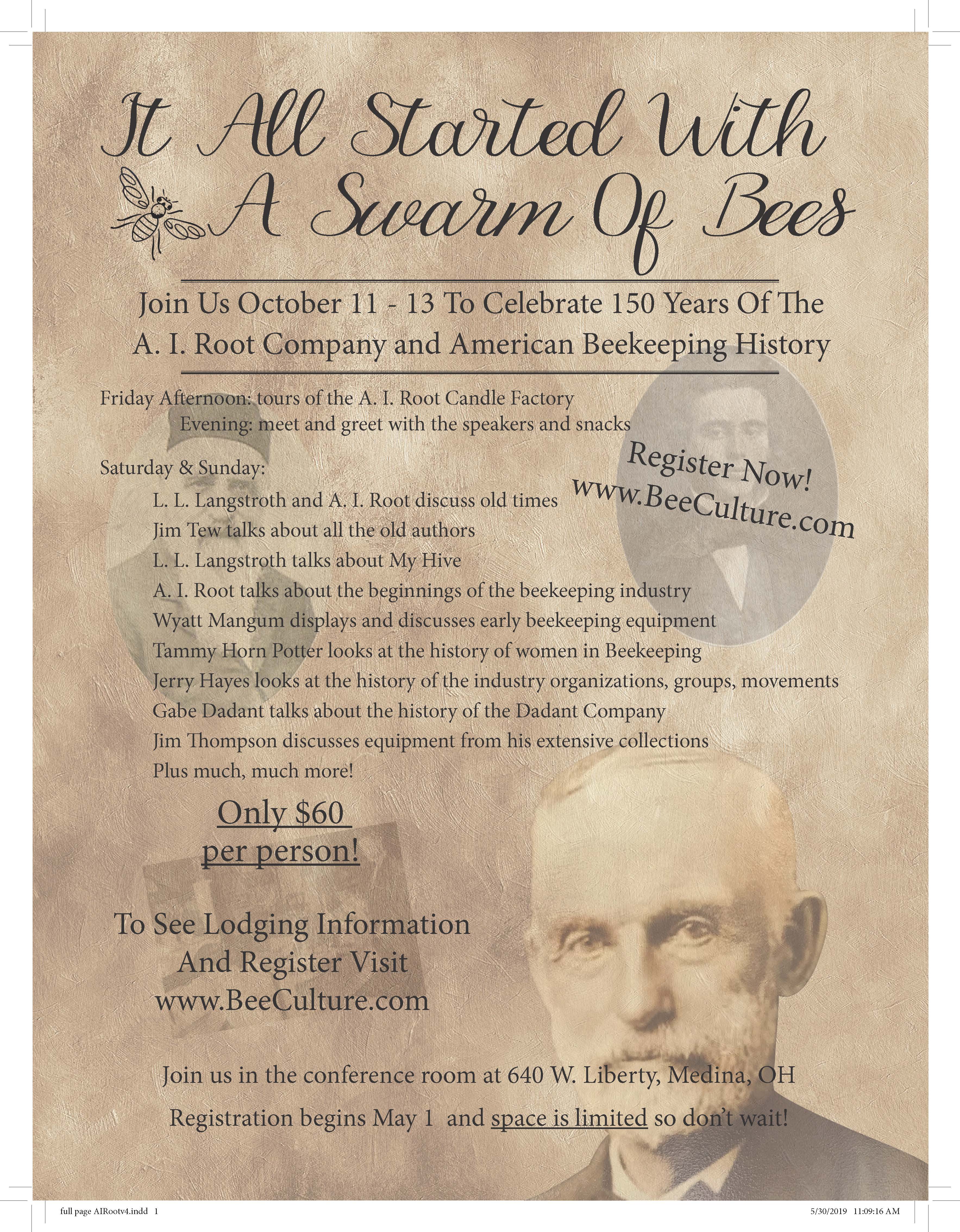The 15th Conference of the COLOSS honey bee research association has now concluded at the Université Laval bureau in Montréal, Canada. The meeting was attended by a record 154 delegates from 37 countries. This represents some 12% of the current membership of 1,275 members from 95 countries, which is extraordinary for an international organisation.
A key task of the meeting was the election of a new Executive Committee to serve for the next term. Prof. Peter Neumann (University of Bern, Switzerland) was re-elected as President, with Prof. Panuwan Chantawannakul (Chiang Mai University, Thailand) and Dr Geoff Williams (Auburn University, USA) elected as Vice-Presidents. Dr Vincent Dietemann (Agroscope, Switzerland) was elected as Secretary.
Detailed updates were given of the activities of the COLOSS Core Projects on the BEEBOOK, B-RAP (Bridging research and practice) and colony loss monitoring, and of the COLOSS Task Forces on Apitox, sustainable bee breeding, small hive beetle, survivors, varroa control, Vespa velutina and viruses. The first meeting of the new Task Force on honey bee nutrition took place. It was reported that during the year, many constructive workshops had been held in a variety of locations, several joint experiments planned, and many publications had been produced.
It was announced that a Memorandum of Understanding had been signed between COLOSS and the International Slow Food Association, Bra, Italy. In view of the crucial role that honey bees and other pollinating insects play in global food security, it is felt that there are many common interests between the two organisations and hence considerable opportunities for mutual benefits.
With the COLOSS meeting being held in North America, the first time it has been held outside Europe, the opportunity was also taken for a joint meeting with the US Bee Informed Partnership and Canadian Tech Transfer team to explore common interests and possible collaboration, for example in data collection and technology transfer.
Most of the COLOSS attendees are now participating in the 46th International Apicultural Congress (Apimonidia) being held at the Palais des Congrès, Montréal.
FOR FURTHER INFORMATION PLEASE CONTACT
Norman Carreck: COLOSS Press Officer, University of Sussex, BN1 9QG, UK.
Tel: +44 7918670169 Email: norman.carreck@btinternet.com
COLOSS is a honey bee research association formerly funded by the European Union COST Programme (Action FA0803) and currently by the Ricola Foundation – Nature & Culture, Veto Pharma, the University of Bern and the Eva Crane Trust, which aims to explain and prevent massive honey bee colony losses. COLOSS does not directly support science, but aims to coordinate international research activities across Europe and worldwide, promoting cooperative approaches and a research programme with a strong focus on the transfer of science into beekeeping practice. COLOSS has nearly 1,300 members drawn from 95 countries worldwide. Its President is Prof. Peter Neumann of the University of Bern, Switzerland.
Website: http://www.coloss.org/
Slow Food is a global, grassroots organization founded in 1989 to prevent the disappearance of local food cultures and traditions, counteract the rise of fast life and combat people’s dwindling interest in the food they eat, where it comes from and how our food choices affect the world around us.
Website: https://www.slowfood.com/
The Bee Informed Partnership (BIP) is dedicated to working with beekeepers to better understand which management practices work best. It gathers survey data from thousands of beekeepers every season to understand how different management practices affect honey bee health, and report findings back to the industry.
Website: https://beeinformed.org/
Apimondia or the International Federation of Beekeepers’ Associations promotes scientific, ecological, social and economic apicultural development in all countries and the cooperation of beekeepers’ associations, scientific bodies and of individuals involved in apiculture worldwide.
Website: https://www.apimondia.com/en
COLOSS, Institute of Bee Health, Vetsuisse Faculty, University of Bern,
Schwarzenburgstrasse 161, 3003 Bern, Switzerland.
Tel: +41 (0) 31 323 8227 Email: coloss.network@gmail.com
______________________________________________________________________________________________________________________________________
They Say Love is Blind, But if You’re a Queen Honey Bee It Could Mean True Loss of Sight.
They state love is visually impaired, yet in case you’re a ruler bumble bee it could mean genuine loss of sight.
New research discovers male bumble bees infuse poisons during sex that reason brief visual impairment. All sexual movement happens during a short early period in a bumble bee’s life, during which guys pass on and rulers can live for a long time while never mating again.
UC Riverside’s Boris Baer, a teacher of entomology, said guys create vision-impeding poisons to expand the one transitory open door they may ever get the opportunity to father posterity.
“The male honey bees need to guarantee their qualities are among those that get passed on by disheartening the ruler from mating with extra guys,” said Baer, senior creator of the investigation that found these blinding discoveries distributed today in the diary eLife. “She can’t fly in the event that she can’t see appropriately.”
The poisons distinguished by the group are proteins contained in male honey bees’ fundamental liquid, which is a substance that looks after sperm. Prior work by Baer’s group additionally found bumble bee fundamental liquid poisons that slaughter the sperm of opponents. All bumble bees make these proteins, however some may make a greater amount of it than others.
Baer first wound up intrigued by quite a while’s fundamental liquid years back as a doctoral understudy. During early extends, he saw that if honey bee rulers were infused distinctly with the liquid and not the sperm during insemination, the rulers quit mating and turned out to be progressively forceful toward guys. He needed to get why.
Around 10 years back, Baer and his worldwide group started investigating which proteins could be found in bumble bees’ liquids.
“We found in any event 300 of these ‘James Bonds,’ minimal mystery operators with explicit missions,” he said.
The group was not so much shocked to discover a protein that assaults the sperm of different guys, as this conduct can be found in different creepy crawlies. Yet, they were astounded to discover the protein that effects qualities in charge of vision in the ruler’s cerebrums.
______________________________________________________________________________________________________________________________________
Don’t Delay – Register TODAY!!!










